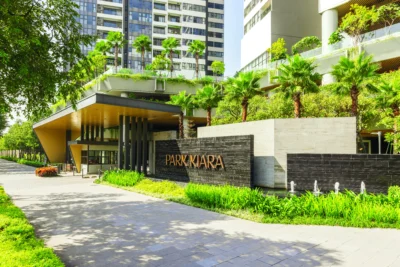Hong Kong developers to adapt to 2021 flexible workplace arrangement
Apartment design will need to adjust to accommodate to new COVID working trends

As stated by the recent Residential Market Monitor report by JLL, Hong Kong real estate developers will need to adapt their residential designs to accommodate to “new normal” working practices as flexible workplace arrangement becomes a norm in 2021.
According to Real Estate News.PH, due to the COVID-19 pandemic, large organisations like HSBC have established longer flexible workplace arrangements, as such employees could work from home up to 4 days per week.
These new work practices and policies have been experimented during the past year and are expected to carry on in 2021 as norms in residential development.
“When flexible workplace arrangement becomes more common, factors such as proximity between the residence and the workplace is likely a lesser consideration, while the home setting could become more of a concern. Given the government did not relax the mortgage restriction on residential, we expect developers to continue to build small-to-medium-sized units to maintain smaller lump sums that can be readily digested by the market,” said Norry Lee, the senior director of caapital markets at Hong Kong-based JLL.
More: COVID-19 work habits anticipate ‘membership’ schemes for Hong Kong tenants
Lee added, “however, developers may reconfigure apartment design to suit the working needs of dwellers. For example, creating space as a study room instead of an en-suite bathroom or putting co-working space within the clubhouse facilities to cater to the new normal of flexible workplace arrangement.”
JLL’s research also indicates strong attraction in residential investments, as the eight residential developments sold by the government this year drew 15 bids on average, and most were sold at prices within market expectations.
Nelson Wong, the head of research at JLL in Mainland China, mentioned, “such flexible workplace policy, being introduced and experimented amid the COVID-19 outbreak, may gradually bring about some lasting changes in residential development. We expect the new trend will provide support for residential investment.”
Recommended
Park Kiara in Hanoi raises the bar for sustainable urban living
Park Kiara in Hanoi is a repudiation of low-density, car-dependent suburban sprawl
6 reasons Bekasi is rising as Greater Jakarta’s next hotspot
One of Greater Jakarta’s rising stars is prospering, thanks to ample recreation and a contingent of desirable housing projects
6 developments driving Asia’s green real estate shift
Developers are being incentivised to push a green agenda into daring new realms
The Philippines’ LIMA Estate drives sustainable industrial growth
LIMA Estate models a citywide vision that uplifts workers while appealing to climate-conscious employers






